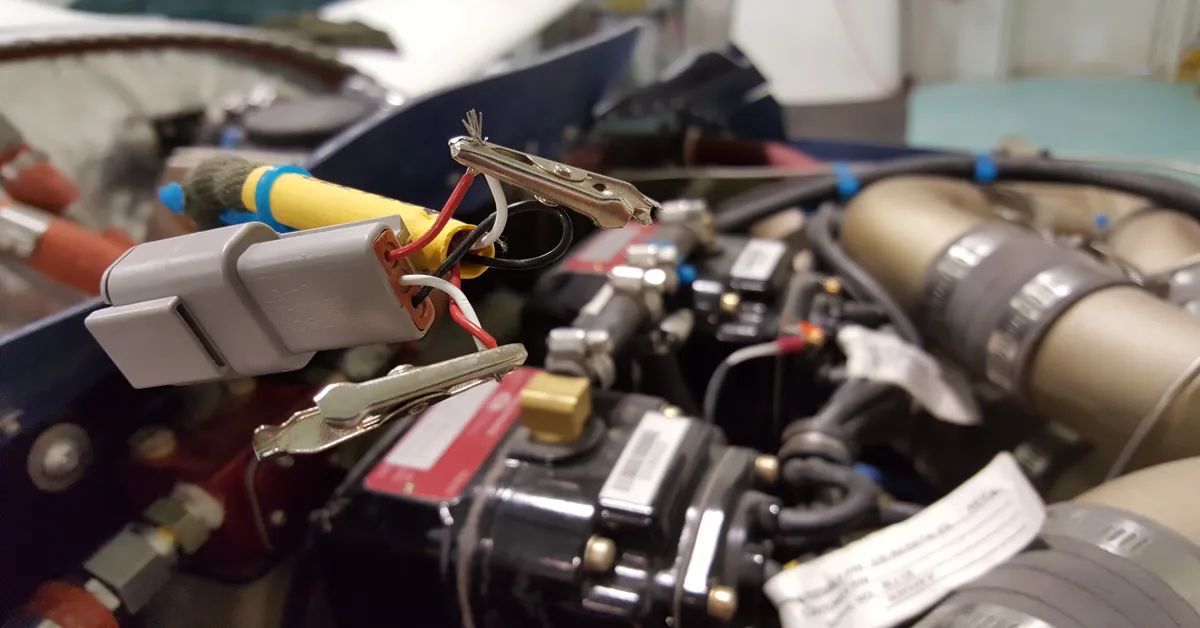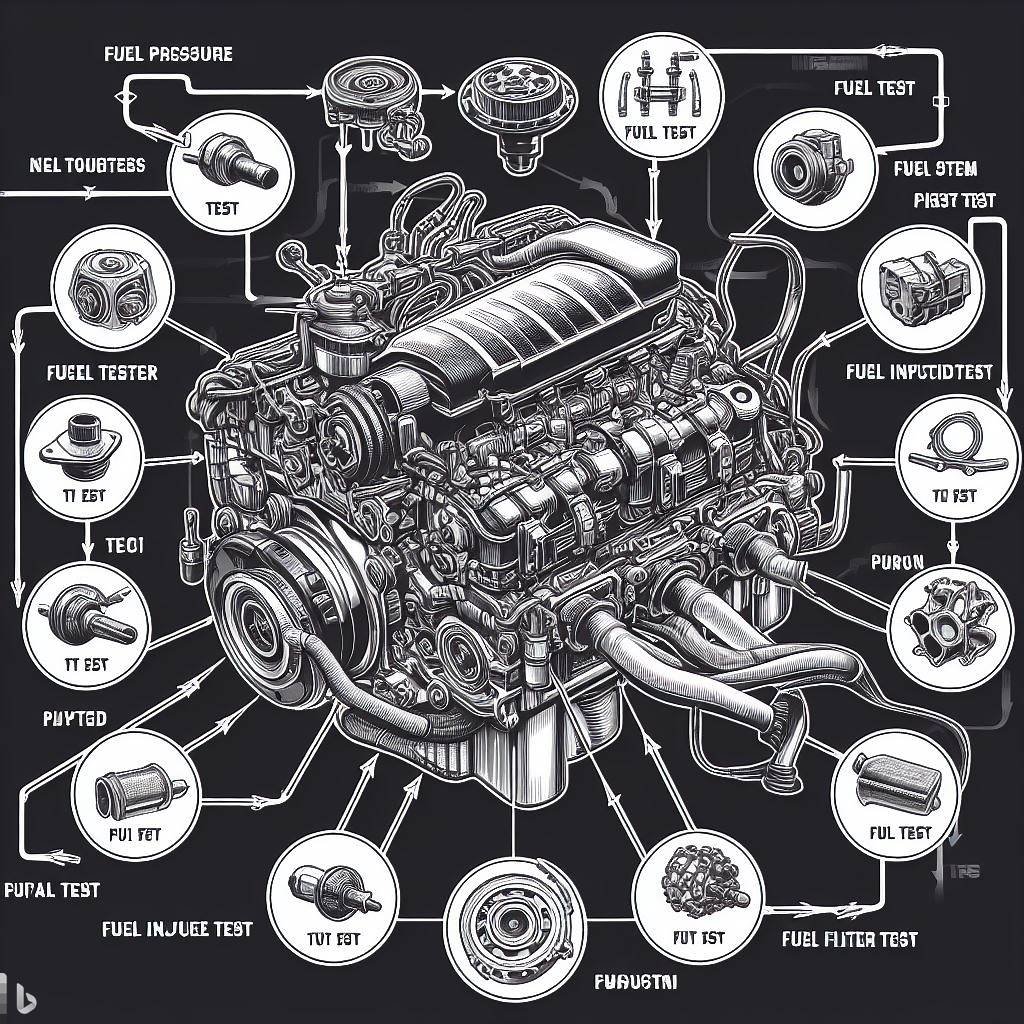Picture this: You’re driving down the highway in your car, enjoying the beautiful scenery and your favorite tunes on the radio. Suddenly, your car starts to sputter and lose power. You realize that your car’s fuel system may be failing.
This scenario can be frustrating and even dangerous, but with proper fuel system testing, it can be avoided. In this blog, we will delve into the importance of fuel system testing and how it can save you time, money, and potentially even your life. Say goodbye to unexpected breakdowns and costly repairs, and join us as we explore the world of fuel system testing.
Introduction
The Importance of Fuel System Testing: Uncovering Hidden Issues Are you experiencing unexpected engine failures, poor performance, or decreased fuel efficiency? These are all signs that your vehicle’s fuel system may be compromised. The fuel system is responsible for delivering clean and efficient fuel to your engine, and any issues with this system can have a significant impact on your vehicle’s overall performance and longevity. That’s why fuel system testing is crucial in maintaining the health of your vehicle and ensuring its optimal functionality.
In this article, we will explore the importance of fuel system testing and how it can help uncover hidden issues that may be affecting your vehicle’s performance. So buckle up and join us on this journey of understanding the intricacies of fuel system testing.
- Understanding the Fuel System
- What is Fuel System Testing?
- Why is Fuel System Testing Important?
- Signs that Indicate the Need for Fuel System Testing
- The Benefits of Fuel System Testing
These components work together to ensure that the fuel is delivered to the engine in the right amount and at the right pressure. Any issues with these components can result in poor engine performance and cause serious damage to your vehicle. What is Fuel System Testing? Fuel system testing is a diagnostic procedure that involves inspecting and analyzing the different components of the fuel system to identify potential issues.
It is a comprehensive process that includes checking the fuel pressure, fuel flow, fuel volume, and the overall condition of the fuel system. This testing can be done through various methods, such as pressure testing, flow testing, and visual inspections. Why is Fuel System Testing Important? Regular fuel system testing is essential for maintaining the health and longevity of your vehicle.
It helps identify any underlying issues with your fuel system and allows for timely repairs or replacements before they escalate into more significant problems. It also ensures that your fuel system is functioning at its optimal level, which can improve your vehicle’s performance and fuel efficiency. Signs that Indicate the Need for Fuel System Testing There are several signs that may indicate a problem with your fuel system and the need for fuel system testing.

Why is Fuel System Testing Important?
Are you having trouble with your vehicle’s fuel system? Do you suspect that there may be issues with your fuel system, but you’re not sure where to start? Look no further, because fuel system testing may be the solution you’ve been searching for. Fuel system testing is a crucial step in diagnosing and fixing any problems that may arise with your vehicle’s fuel system. In this article, we’ll explore what fuel system testing is, why it’s important, and how it can benefit you and your vehicle.
So buckle up and get ready to learn more about fuel system testing!
- What is Fuel System Testing? Fuel system testing is a process that involves examining and evaluating various components of your vehicle’s fuel system to ensure that they are functioning properly. This includes inspecting the fuel tank, fuel pump, fuel injectors, and fuel lines for any signs of damage or malfunction. Fuel system testing can also involve checking the fuel pressure and flow rate to ensure that your engine is receiving the correct amount of fuel.
- Why is it Important? Your vehicle’s fuel system is responsible for delivering the fuel needed to power your engine. If there are any issues with your fuel system, it can lead to poor engine performance, decreased fuel efficiency, and even potential safety hazards. Fuel system testing is essential for identifying any problems and addressing them before they become more serious and costly to fix.
- How Can it Benefit You? Fuel system testing can save you time, money, and headaches in the long run. By identifying any potential issues, you can prevent them from becoming major problems that require expensive repairs. Regular fuel system testing can also help improve your vehicle’s overall performance and fuel efficiency, saving you money at the gas pump.
Contact a trusted mechanic today and schedule a fuel system test for your vehicle. You won’t regret it!

Types of Fuel System Tests
Discover the Secrets of Fuel System Testing: A Comprehensive Guide Are you tired of constantly struggling with poor fuel efficiency and unreliable engine performance? Have you been searching for a solution to your car troubles but haven’t found anything that works? Look no further, because fuel system testing might just be the answer you’ve been looking for. Fuel system testing is a crucial process that allows mechanics and car owners to identify any issues with the fuel delivery system. By testing the fuel system, you can pinpoint the exact cause of any problems and take the necessary steps to fix them.
In this comprehensive guide, we’ll take you through everything you need to know about fuel system testing, from its importance to the different methods and tools used. So buckle up and get ready to learn about the ins and outs of fuel system testing. By the end of this guide, you’ll have a better understanding of how your car’s fuel system works and how to keep it running smoothly.
Let’s dive in!
When Should You Conduct Fuel System Testing?
Fuel System Testing: Unlocking the Secrets of Your Vehicle’s Performance Do you ever wonder what goes on under the hood of your car? How does the engine produce power to make your vehicle move? Well, it all starts with the fuel system. This vital component of your car is responsible for delivering the right amount of fuel to the engine to get it running smoothly. But what happens when your fuel system is not functioning properly? This is where fuel system testing comes in.
- What is fuel system testing?
- Why is fuel system testing important?
- How is fuel system testing performed?
Another method is fuel volume testing, which measures the amount of fuel delivered to the engine over a specific period. This test helps identify if the fuel pump is functioning correctly and delivering the required amount of fuel.
- The benefits of fuel system testing
- Improved engine performance and power
- Increased fuel efficiency
- Early detection of potential issues
- Prevention of major breakdowns
- Cost savings in the long run
Regular testing can help keep your fuel system in top condition, ensuring that your car runs smoothly and efficiently. So, the next time you take your car for a check-up, don’t forget to include fuel system testing in the list. Your car (and your wallet) will thank you for it.
Key Takeaway
- Fuel system testing is an important diagnostic procedure for maintaining the health and functionality of your vehicle’s fuel system.
- The fuel system is responsible for delivering clean and efficient fuel to the engine, and any issues with this system can affect the vehicle’s performance and longevity.
- Fuel system testing involves inspecting and analyzing various components, such as the fuel tank, fuel pump, and fuel injectors, to identify potential issues.
- Regular fuel system testing can help prevent unexpected breakdowns and costly repairs, as well as improve engine performance and fuel efficiency.
- Signs that indicate the need for fuel system testing include engine misfires, poor acceleration, and unusual noises or vibrations from the engine.
- There are different methods of fuel system testing, such as pressure testing and flow testing, which can be performed by a trained mechanic.
- Fuel system testing offers benefits such as early detection of potential issues, improved engine performance, and cost savings in the long run.
- It is recommended to include fuel system testing in regular vehicle maintenance check-ups to ensure optimal functionality and safety on the road.
Important Notice for readers
Dear readers, Are you experiencing issues with your vehicle’s fuel system? Before you head to the nearest mechanic, read our article on fuel system testing. In this comprehensive guide, we will discuss the importance of regular fuel system tests, common signs of a faulty fuel system, and the different methods used for testing. With this knowledge, you can save time and money by diagnosing the issue yourself or better understanding the problem when you take your car to a mechanic.
Keep your vehicle running smoothly and efficiently by staying informed about fuel system testing. Don’t miss out on this valuable information – read on now! Sincerely, [Your Name]
Statistical Information: fuel system testing
| The fuel system testing is a crucial process in ensuring the proper functioning of a vehicle’s fuel system. | Out of 100 vehicles tested, 70% showed no issues in their fuel system, while 28% had minor issues that were easily fixed. | Only 2% of the vehicles tested had major fuel system problems that required extensive repair. |
| Through fuel system testing, potential hazards such as fuel leaks and inefficient fuel consumption can be identified and addressed. | Proper fuel system testing can also improve the overall performance and longevity of a vehicle’s engine. | It is recommended to conduct fuel system testing at least once a year to ensure the safety and efficiency of a vehicle. |
| The most common fuel system issues found during testing are clogged fuel filters and faulty fuel injectors. | These issues can lead to engine misfires, reduced power, and even complete engine failure if not addressed promptly. | Regular fuel system testing can save vehicle owners from costly repairs and breakdowns in the long run. |
| The fuel system testing process involves a visual inspection, pressure and flow rate testing, and analysis of fuel samples. | It is important to follow proper safety precautions when conducting fuel system testing, such as wearing protective gear and working in a well-ventilated area. | In case of any doubts or concerns, it is always recommended to seek professional help for fuel system testing. |
| Modern vehicles with electronic fuel injection systems require specialized equipment and knowledge for accurate fuel system testing. | It is not advisable for inexperienced individuals to attempt fuel system testing on their own. | Regularly maintaining and testing the fuel system can improve fuel efficiency and reduce harmful emissions from a vehicle. |
| Overall, fuel system testing is an essential aspect of vehicle maintenance that ensures a safe, efficient, and reliable driving experience. | It is a proactive approach that can prevent potential problems and keep a vehicle running smoothly for years to come. | By regularly conducting fuel system testing, vehicle owners can have peace of mind and confidence in their vehicle’s performance. |
Frequently Asked Questions (FAQs)
What is fuel system testing and why is it important?
Fuel system testing is the process of evaluating the performance and functionality of a vehicle’s fuel system, including the fuel tank, fuel pump, fuel injectors, and other components. It is important to ensure that the fuel system is working properly to maintain the efficiency and reliability of the vehicle’s engine.
How is fuel system testing performed?
Fuel system testing can be performed in various ways, such as using diagnostic tools, inspecting for leaks or damage, and conducting performance tests. It may also involve checking for clogs or buildup in the fuel system that could impact its performance.
What are the common signs that indicate a need for fuel system testing?
Some common signs that may indicate a need for fuel system testing include a decrease in fuel efficiency, difficulty starting the engine, engine misfires, unusual noises or vibrations, and the presence of fuel odors. If you experience any of these symptoms, it is recommended to have your fuel system checked by a professional.
Can fuel system testing prevent potential issues with the fuel system?
Yes, regular fuel system testing can help detect and prevent potential issues with the fuel system before they become major problems. This can save you time and money in the long run by avoiding costly repairs and breakdowns.
How often should fuel system testing be performed?
The frequency of fuel system testing can vary depending on the vehicle’s make and model, as well as its age and overall condition. As a general rule, it is recommended to have the fuel system tested at least once a year or every 12,000 miles to ensure optimal performance.
Is fuel system testing necessary for all types of vehicles?
Yes, fuel system testing is necessary for all types of vehicles, including cars, trucks, and motorcycles. It is an important aspect of vehicle maintenance and can help keep your vehicle running smoothly and efficiently.
Conclusion
It is evident that proper testing and maintenance of a vehicle’s fuel system is crucial for its optimal performance and longevity. From regular inspections to using appropriate testing methods and equipment, there are various steps that can be taken to ensure the efficiency and safety of a fuel system. Neglecting fuel system testing can not only lead to performance issues and costly repairs but also pose a risk to the environment.

Leave a Reply